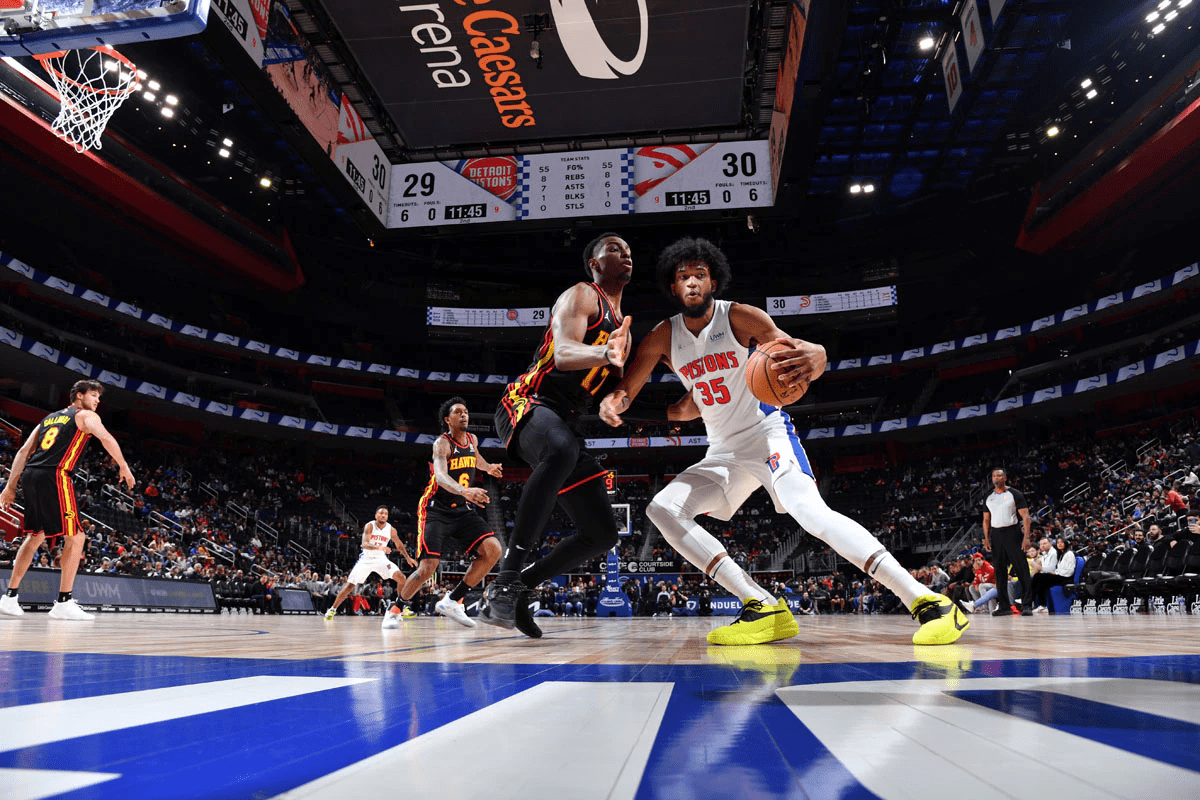When Detroit’s Little Caesars Arena was planned in the mid-2010s, the goals weren’t just to create a great facility for players and fans but also, to make the venue environmentally sound, both during construction and once it opened. “A primary focus [was] on sustainability and being a caretaker of the environment,” according to Chris Granger, group president, Sports & Entertainment, Ilitch Holdings, Inc., the prime movers behind this project.
During the arena’s construction, all the products and materials used followed the U.S. Green Building Council’s Leadership in Energy and Environmental Design (LEED) guidelines. Almost a quarter of the building’s materials contained recycled materials, while more than 13% of the materials were sourced locally. The builders also installed a high-tech ventilation system and used products without harmful emissions. Efficient water fixtures helped lower potable water usage by more than 40%. The arena also was built with an EPA-approved sedimentation and erosion control plan to limit water waste. These features contributed to the venue receiving a Silver LEED certification for New Construction in 2019.

A centerpiece of the nearly $900 million sports complex, which includes the arena and three connected buildings, is the ethylene tetrafluoroethylene (ETFE) roof that covers the central exterior concourse, known as the “Via.” The heat-resistant ETFE polymer delivers uniform year-round temperatures, which saves on electricity. Because the roof lets in ample daytime light, it decreases the need for artificial lighting by around 17%. Additionally, ETFE is easy to maintain because it naturally repels dirt. The polymer is also self-extinguishing, protecting from fire and other weather threats.
The buildings’ exteriors also are low maintenance because they have durable, long-lasting anodized finishes. They are eco-friendly because they don’t contain volatile organic compounds, and the process byproducts are recyclables.
Furthermore, the buildings’ aluminum storefronts, curtain walls, and entrance systems, created by the Michigan-based firm Tubelite, promote energy efficiency and thermal comfort, contain low-emitting materials, and are 100% recyclable.
The extensive installation of LED lights—including a mile-long LED grid on the arena’s ceiling —further reduces energy consumption. A new substation was built by the local energy company DTE to power the venue’s electrical system, which allows the arena staff to control the energy load. Overall, the Little Caesars complex’s energy cost savings have exceeded 17%.
With the arena as home to the NBA’s Pistons and the NHL’s Red Wings, and the Tigers and the Lions also playing nearby in the downtown area, Detroit is the only U.S. city to have all four of its major pro sports teams located in its urban core. The arena’s downtown location also makes it conveniently situated for public and other alternative transportation, which assists in reducing gas-powered vehicle usage and carbon emissions.
HOK designed the sports complex in a “deconstructed” way with three connected buildings instead of one massive one to scale it for the area. “One of the main design goals,” explained Paul Leskovac, HOK senior project architect, “was to make the arena fit into the fabric of downtown and the surrounding neighborhood, rather than being this behemoth arena.”
The floor sits 30 feet below street level to decrease the arena’s height. This design choice enhances the fan experience by providing good sight lights and giving this large arena a sense of intimacy.

The Little Caesars Arena has received several accolades for its safety and sustainability efforts.
It was the nation’s first sports and entertainment venue to achieve the SAFETY Act Certification, the U.S. Department of Homeland Security’s highest level of protection. The National Center for Spectator Sports Safety and Security honored the arena with its Sport Event Security Aware (SESA) designation. The National Weather Service also recognized the Little Caesars Arena as being “StormReady,” meaning it is certified to spot, report, and prepare for severe weather conditions.
Besides its Silver LEED certification, the Little Caesars Arena also was named the Sports Facility of the Year at the 2018 Sports Business Awards. Ilitch Holdings’ President and CEO Christopher Ilitch stated that “our vision for what Little Caesars Arena could offer to fans, players, artists, and community members drove us to create something very special and highly innovative,” and it is pretty clear that they have succeeded in making this vision a reality.





